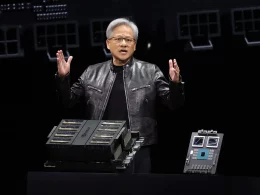The first TSMC factory in Japan, which has recently been constructed, is set to begin production by the end of this year. The advent of two more TSMC facilities in Japan will allow the latter in the companies to establish themselves on the local market. Sony and Renesas are interested in becoming clients of TSMC.
The inauguration of TSMC’s joint venture with Sony and Denso, known as JASM, which marks TSMC’s first foreign venture since 2018, was attended by the top brass of both TSMC and numerous members of the Japanese government. Soon, TSMC’s Japanese factory will commence with test production, with mass production expected to be underway by the end of the year.
Predominantly, the first JASM factory will be producing chips that range from 12nm to 28nm. According to TrendForce analysts, the bulk of production will primarily focus on 22-nm and 28-nm products, with the more sophisticated 12-nm and 16-nm chips encompassing only a small part of the product range. Every month, the first JASM facility will be capable of processing 40,000 to 50,000 300mm silicon wafers.
The ceremony was attended by TSMC leadership, who announced plans to more than double the initial investment volume for projects in Japan, lifting the overseas bar to $20 billion. The second TSMC facility, set to be constructed with financial participation from Toyota Motor, is expected to be operational by the end of 2027. They plan to release 7-nm and 6-nm products for use mainly in the industrial sector and AI sphere. It bears noting that Denso Corporation, a major component provider for Toyota Motor and a shareholder in the JASM venture, will potentially benefit from this initiative. Preliminary data suggest that Japanese authorities are ready to provide up to $4.9 billion in subsidies for the construction of the second TSMC factory in Japan. Taken together, the two TSMC facilities will process more than 100,000 silicon wafers per month. Coupled with the first plant, Japanese government subsidies will reach $8 billion.
Japanese customers accounted for about 6% of TSMC’s total revenue in 2023, amounting to $69.3 billion. Local hardware suppliers are also actively partnering with TSMC to provide the necessary facilities for chip production. Since 2019, TSMC has operated a research center in Ibaraki Prefecture, focusing on materials science and the development of advanced chip packaging methods. Plans for an experimental production line in Japan, set to fine-tune novel techniques in this field, have also been outlined.



